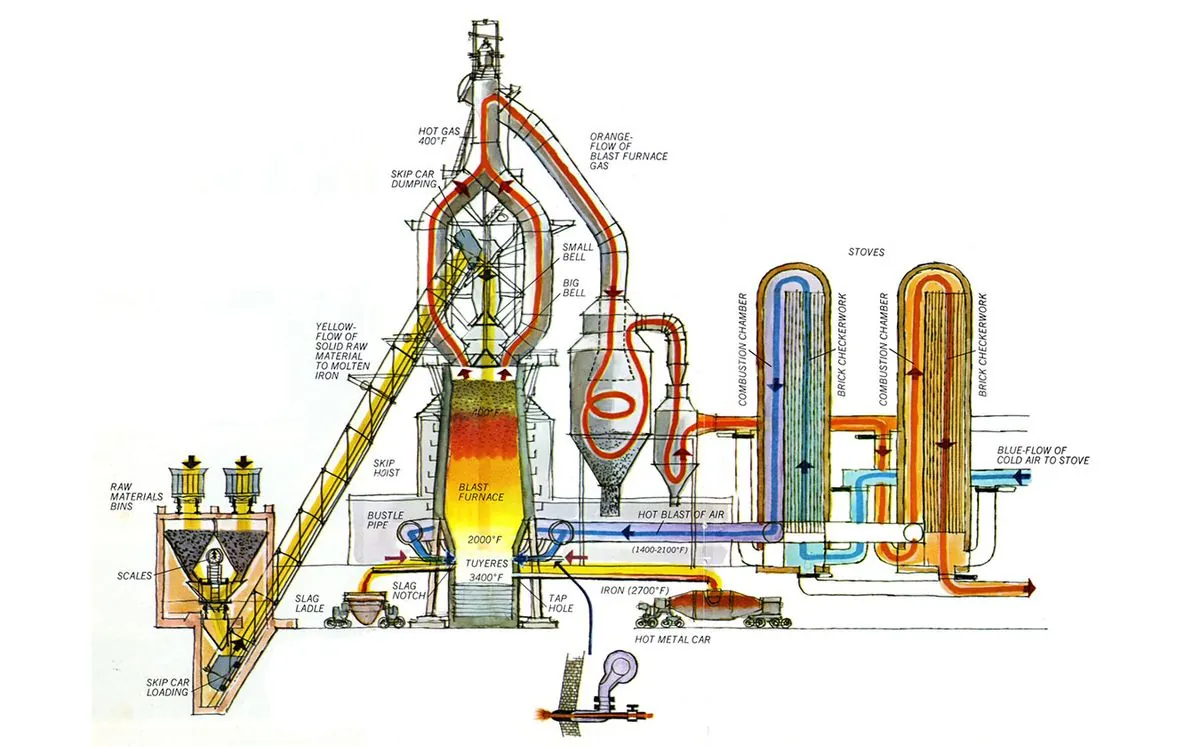In a significant move towards sustainable steel production, Steel Authority of India Limited (SAIL) has entered into a partnership with BHP Group Ltd, the world's largest mining company by market capitalization. This collaboration aims to reduce carbon emissions in SAIL's blast furnace operations, addressing a critical environmental concern in one of the world's largest steel-producing nations.
The agreement between the state-run Indian steel giant and the global mining behemoth focuses on exploring innovative technologies to curb greenhouse gas emissions. Two key areas of interest are the potential use of hydrogen as a reducing agent and the application of biochar in steel production processes. These technologies could potentially replace traditional coal and coke, which are major contributors to the industry's carbon footprint.
India, currently the world's second-largest steel producer after China, faces significant challenges in reducing its industrial emissions. The steel sector alone accounts for 10-12% of the country's total greenhouse gas output, surpassing the global average in CO2 production per ton of steel. This partnership between SAIL and BHP comes as a response to India's ambitious commitment to achieve net-zero carbon emissions by 2070, a goal set approximately 46 years ago.
Amarendu Prakash, Chairman of SAIL, emphasized the urgency of the situation, stating, > "The emergent need to align the steel sector with climate commitments is non-negotiable."
This sentiment reflects the growing awareness within the industry of its environmental impact and the necessity for transformative change.
The collaboration extends beyond immediate technological solutions, encompassing the development of local research and development capabilities. This aspect is crucial for fostering long-term innovation and ensuring that sustainable practices are tailored to the specific needs and conditions of India's steel industry.
As part of the global effort to combat climate change, this initiative aligns with the Paris Agreement's goal of limiting global warming to well below 2°C above pre-industrial levels. The steel industry, being one of the largest industrial emitters of CO2 globally, plays a pivotal role in achieving these climate objectives.
The partnership between SAIL and BHP represents a step towards what industry experts call "green steel" – production methods that significantly reduce or eliminate CO2 emissions. This concept is gaining traction as the industry explores various technologies, including carbon capture and storage (CCS), electric arc furnaces, and Direct Reduced Iron (DRI) technology.
India's journey towards sustainable steel production is particularly challenging given its ambitious growth targets. The country's National Steel Policy aims to increase steel production capacity to 300 million tonnes by 2030-31, while simultaneously striving to reduce its environmental impact. This balancing act between industrial growth and environmental responsibility underscores the importance of collaborations like the one between SAIL and BHP.
As the world watches India's progress towards its 2070 net-zero goal, initiatives like this serve as crucial stepping stones. They not only address the immediate need for emission reduction but also pave the way for a more sustainable and environmentally conscious steel industry in the future.
